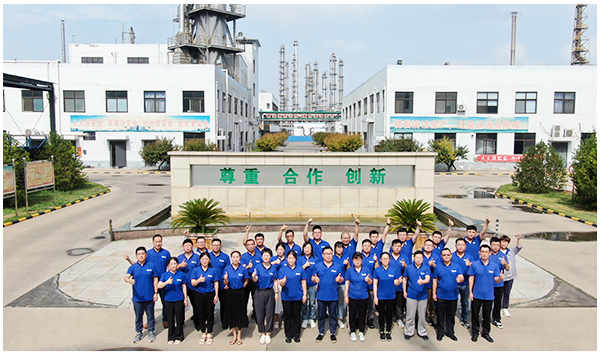
News
Dec . 04, 2024 10:13 Back to list
custom edds chelating agent
Custom EDDS Chelating Agents An Innovative Approach to Metal Ion Control
In a world increasingly concerned with environmental sustainability and industrial efficiency, the role of chelating agents has emerged as a pivotal element in various sectors. Amongst these, ethylene diamine disuccinic acid (EDDS) stands out as a promising eco-friendly alternative. As an aminocarboxylic acid, EDDS is recognized for its ability to bind metal ions effectively. With the rise of custom EDDS chelating agents, industries can develop tailored solutions to address specific challenges associated with metal ion control.
Understanding Chelating Agents
Chelating agents, or chelators, are molecules that can form multiple bonds with a single metal ion, thereby grabbing these ions and preventing them from participating in undesirable reactions. This property is particularly valuable in applications such as water treatment, agriculture, pharmaceuticals, and industrial processes. The most commonly used chelating agents include ethylenediaminetetraacetic acid (EDTA) and nitrilotriacetic acid (NTA). However, the search for more environmentally friendly alternatives has led to increased interest in EDDS.
The Advantages of EDDS
EDDS offers several significant advantages over traditional chelators. First and foremost, it is biodegradable and has a lower toxicity profile. Unlike EDTA, which is persistent in ecosystems and can lead to environmental concerns due to its potential to remove essential metal ions from soils and water bodies, EDDS breaks down in natural conditions. This property makes it particularly attractive for agricultural applications, where the impact on soil health and microbial populations is a critical consideration.
Moreover, EDDS exhibits a high selectivity for certain metal ions, such as lead, copper, and cadmium, making it an effective tool for remediation in contaminated sites. By creating custom formulations of EDDS, industries can enhance its operational effectiveness for specific metal ion challenges, thus offering a refined approach to pollution management.
Customization for Targeted Applications
custom edds chelating agent

The advent of custom EDDS chelating agents allows for the modification of EDDS properties according to specific needs. This process can involve altering the chemical structure of the agent, adjusting its pH stability, or enhancing its solubility in various environments. For instance, in soil remediation, a custom EDDS formulation might be developed to perform optimally in particular soil types, enhancing its metal ion binding capacity under specific pH conditions.
Custom EDDS formulations can also be designed to enhance the efficiency of fertilizers in agriculture. By binding essential nutrients, these agents can help create a controlled release process, reducing the leaching of nutrients into water systems, and improving crop uptake. This not only enhances agricultural productivity but also promotes environmental sustainability by minimizing the runoff of harmful substances.
Applications Across Industries
The applicability of custom EDDS chelating agents spans across various sectors. In the agricultural industry, they can be formulated to improve soil health by mobilizing micronutrients essential for plant growth, ensuring that crops receive optimal nutrition without contributing to soil degradation.
In the industrial sector, custom EDDS can be employed in metal finishing processes, where precision in metal ion control can substantially influence product quality. For instance, in the electronics industry, where metallic components are essential, the use of tailored EDDS solutions ensures a cleaner production line, minimizing waste while elevating the quality of the final product.
Furthermore, in the realm of pharmaceuticals, custom EDDS agents can be utilized to stabilize drug formulations by sequestering metal ions that could lead to degradation, thus extending the shelf life of medications.
Conclusion
The development of custom EDDS chelating agents represents a significant advancement in the search for environmentally safe and efficient solutions to metal ion management. With their high selectivity, biodegradability, and adaptability, these agents can be tailored to meet the specific demands of various industries. As we progress further into an era focused on sustainable practices and the reduction of environmental impact, the innovation surrounding EDDS will undoubtedly play a crucial role in shaping both current and future applications in metal ion control. The move towards individualized chelating solutions exemplifies a growing understanding of the intricate balance between industrial efficiency and ecological responsibility, marking a promising step forward in the realm of chelation technology.
-
Polyaspartic Acid Salts in Agricultural Fertilizers: A Sustainable Solution
NewsJul.21,2025
-
OEM Chelating Agent Preservative Supplier & Manufacturer High-Quality Customized Solutions
NewsJul.08,2025
-
OEM Potassium Chelating Agent Manufacturer - Custom Potassium Oxalate & Citrate Solutions
NewsJul.08,2025
-
OEM Pentasodium DTPA Chelating Agent Supplier & Manufacturer High Purity & Cost-Effective Solutions
NewsJul.08,2025
-
High-Efficiency Chelated Trace Elements Fertilizer Bulk Supplier & Manufacturer Quotes
NewsJul.07,2025
-
High Quality K Formation for a Chelating Agent – Reliable Manufacturer & Supplier
NewsJul.07,2025
